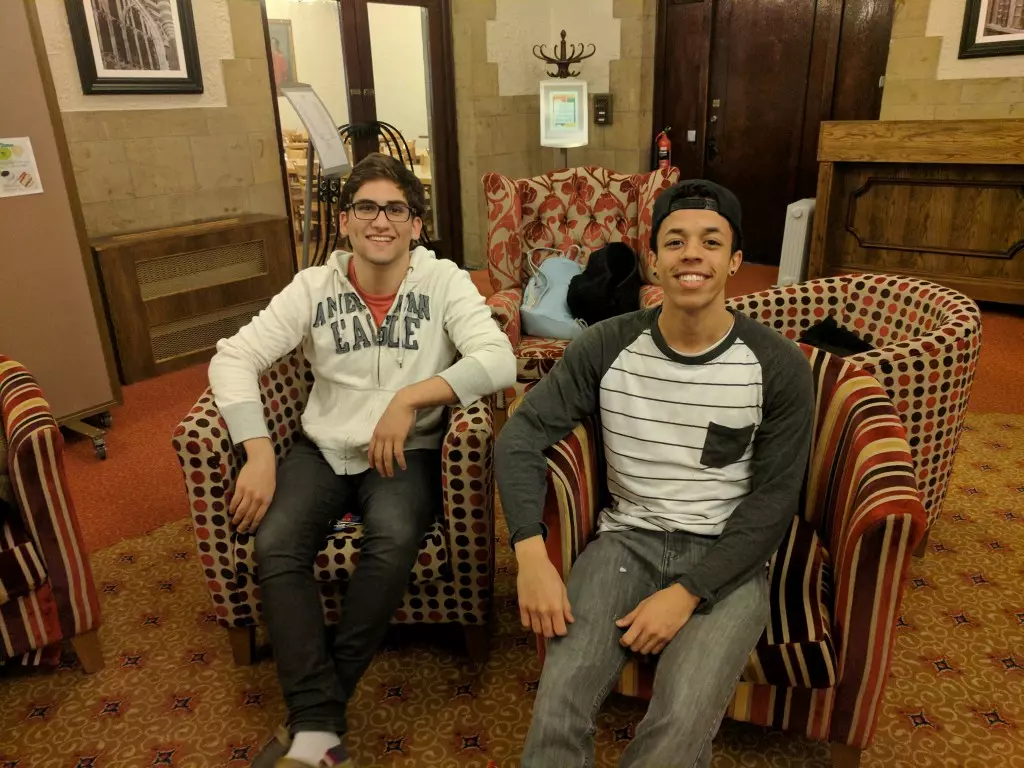Male Perspectives on Study Abroad


I needed a little bit of help for this one. I recruited two of my new friends—who are also studying at the University of Leeds—to lend me some perspective. I wanted to know a little more about what it’s like to study abroad as a man. Even before I knew the statistics, I noticed that of all the international students I have met, a vast majority of them are women.
Data from 2014 shows that 65.3% of study abroad students are women. It makes me sad to think that there might be such a large group of students who aren’t having this incredible experience. With a little help, I hope I can get to the bottom of why men are being left out.
Here is little basic information about the gentlemen who assisted with this article.
The first is Jorge Ribas, he is a twenty year old student of computer science and software engineering at the Universidad Latina de Costa Rica.
Also helping me is Austin Blackmon, age 20. He majors in biomedical sciences with a minor in chemistry at Northern Arizona University.
What made you decide to study abroad?
JR: I wanted to compare between my home university and University of Leeds, and their different teaching and evaluating methods.
AB: I decided I wanted to study abroad because I realized how ignorant I was of the world. Studying abroad was a great opportunity for me to not only educate myself about my major, but take in a new culture and meet new people from around the world.
In your opinion, what is the best part of studying abroad?
JR: Getting to meet new people, learn from their stories and cultures and be able to integrate them in your life in some way.
AB: Definitely meeting so many wonderful people. Everyone here is extremely nice and generous which makes finding new friends easy. We’re all international students which puts us in our own little club where we all learn about each other’s countries, culture, and vocabulary. It’s been the people that I’ve met that have made this adventure amazing.
Fewer men study abroad than women, why do you think that is?
JR: Wouldn’t be able to say why. I have many male friends that left Costa Rica to study in the United States. For me, studying in Costa Rica, it seemed illogical to decline this opportunity, which may never happen again.
AB: I think more women study abroad because they’re more adventurous than men. Studying abroad is a fun yet terrifying experience. Leaving your home to go somewhere where you don’t know anyone can deter many people. It seems that women are more open to that idea than men are.
What advice would you give to a guy thinking about spending a semester abroad?
JR: If you like to travel, meet new people and learn new experiences daily you just have to go for it. Commit to the experience and don’t think twice about leaving everyone you know behind, because it’s only going to be for a semester.
AB: All the stress, anxiety, and work that comes before studying abroad is worth it. It’s going to be the best time of your life. This experience is going to make you grow as a person, so be prepared and open for everything that comes at you. Also, things are almost never going to go as planned so try to be as flexible as possible.
What do you think would be the best way to encourage more men to study abroad?
JR: With good advertisement and encouragement from their teachers or study abroad office more guys will join naturally. Maybe if there were more opportunities for sports scholarships or something similar some might be more interested.
AB: What motivates men more than anything? Women. Start telling young, college guys that 65% of all study abroad students are women and we might start to see a rise in men studying abroad. Also, if there were more scholarships available to make studying abroad more affordable it would likely increase the numbers as well.
Has being male presented any special difficulties for you while abroad?
JR: No it hasn’t in the slightest way.
How is dating and gender culture different in England vs your university?
JR: My university, like most back home, is very small compared to the University of Leeds—almost everyone knows each other, or knows someone who has had class with someone else. So that creates a kind of reaction to people where they normally end up separating their personal or “dating” life from their professional or “uni” life.
Has studying abroad changed the way you feel about yourself? Are you more confident, or more aware of your weaknesses?
JR: No, but I’m still very glad to have this experience.
Do you think studying abroad will give you any special advantage in your future career?
JR: Perhaps, just for the fact that it will provide more points of personal experience to my curriculum. Otherwise I’m not sure how this would benefit me.
A special thank you to Jorge and Austin for all their help. With any luck they’ll be correct, and the next few years will show an increase in men abroad!
Carley R. | Psychology major | The University of the South: Sewanee | University of Leeds in England | Spring 2017 | IFSA International Correspondent